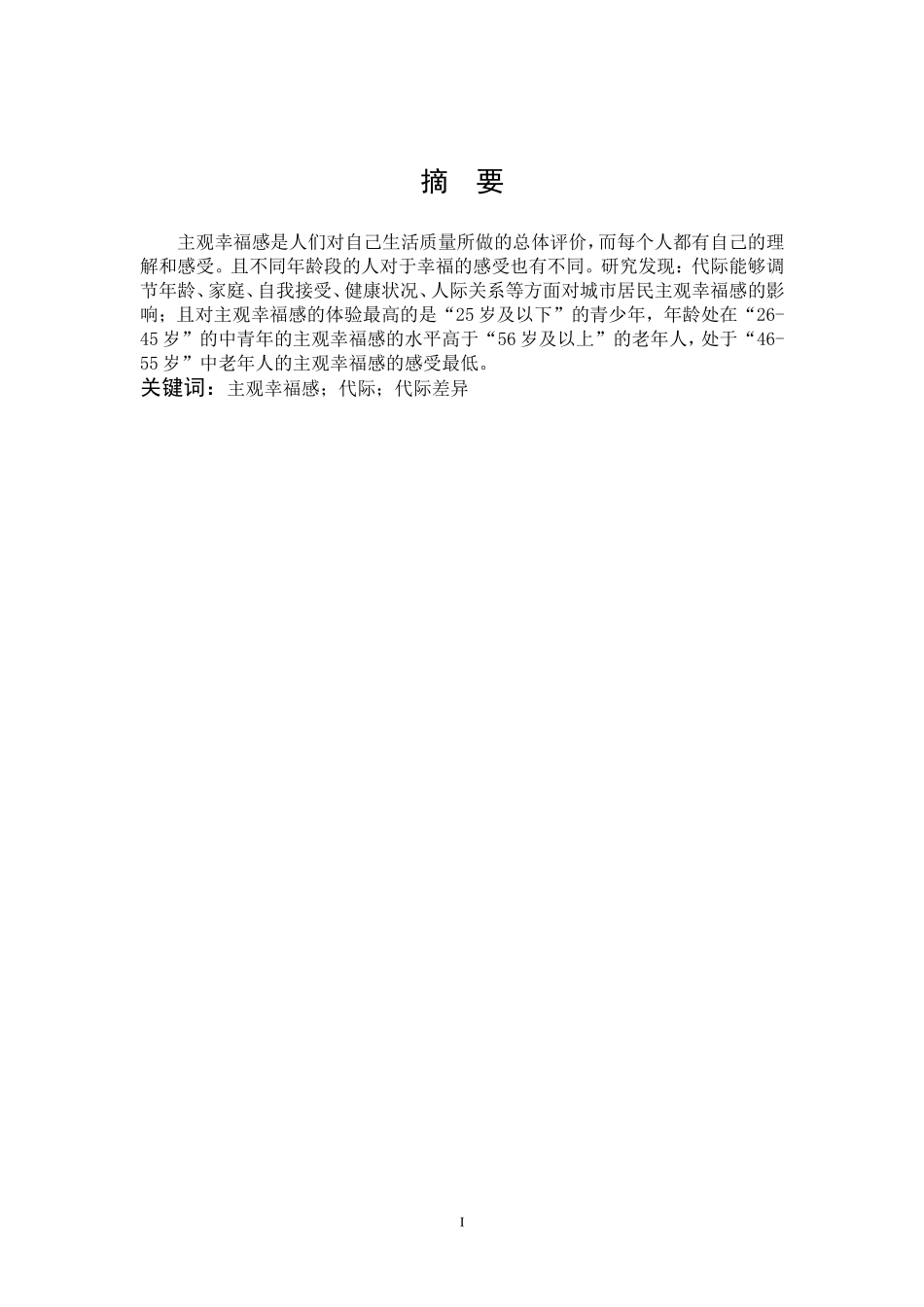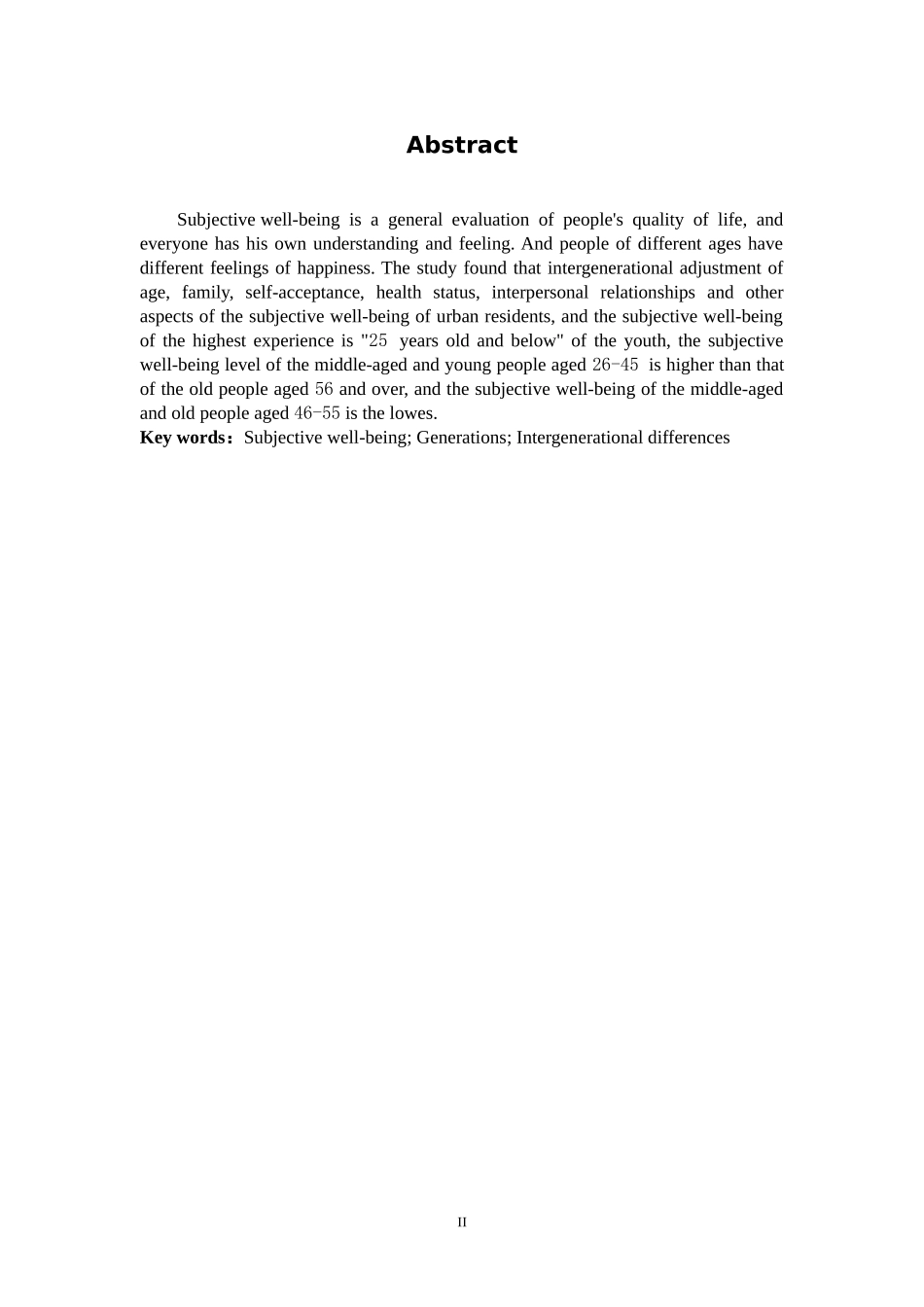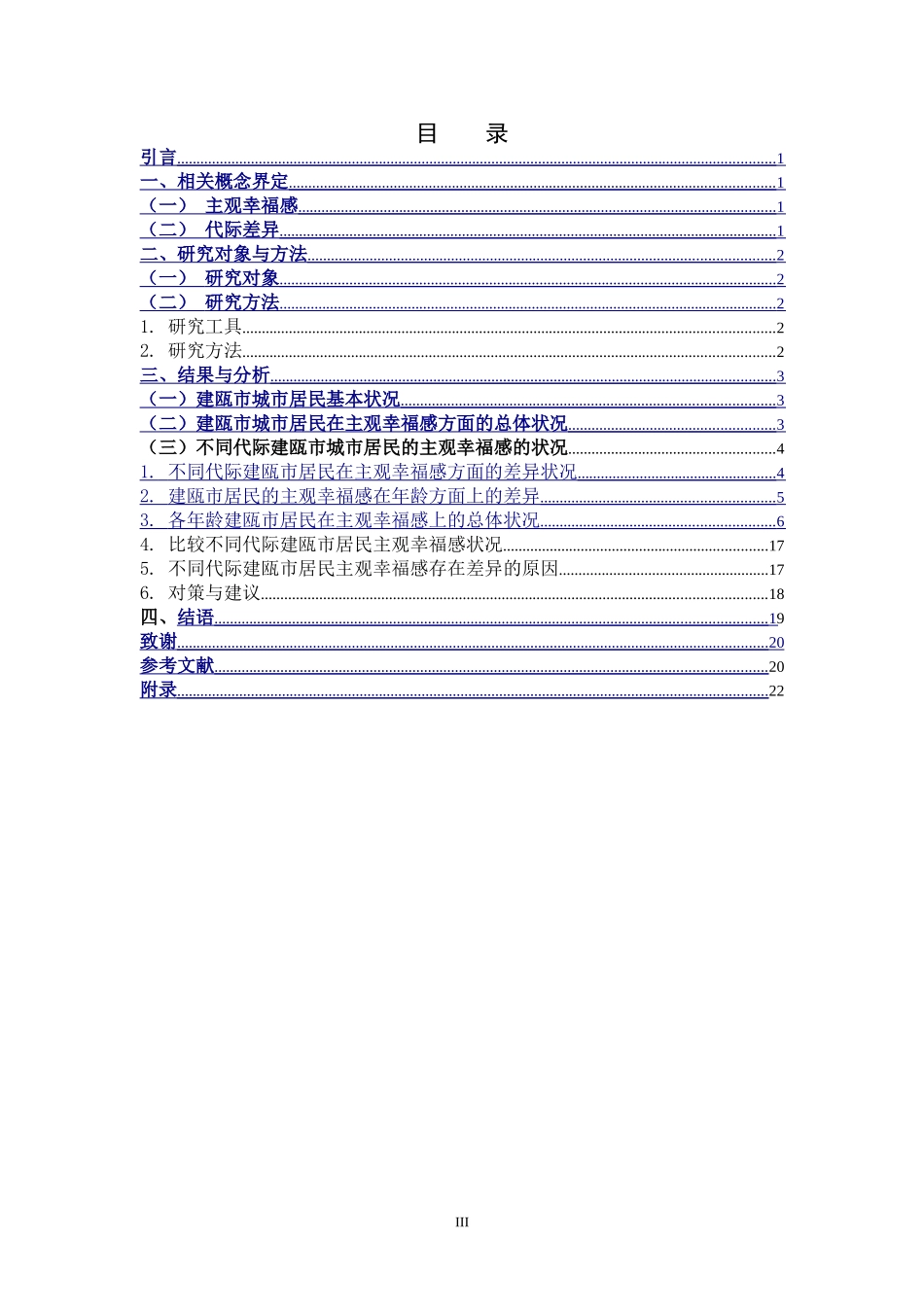I摘 要主观幸福感是人们对自己生活质量所做的总体评价,而每个人都有自己的理解和感受。且不同年龄段的人对于幸福的感受也有不同。研究发现:代际能够调节年龄、家庭、自我接受、健康状况、人际关系等方面对城市居民主观幸福感的影响;且对主观幸福感的体验最高的是“25 岁及以下”的青少年,年龄处在“26-45 岁”的中青年的主观幸福感的水平高于“56 岁及以上”的老年人,处于“46-55 岁”中老年人的主观幸福感的感受最低。关键词:主观幸福感;代际;代际差异IIAbstractSubjective well-being is a general evaluation of people's quality of life, and everyone has his own understanding and feeling. And people of different ages have different feelings of happiness. The study found that intergenerational adjustment of age, family, self-acceptance, health status, interpersonal relationships and other aspects of the subjective well-being of urban residents, and the subjective well-being of the highest experience is "25 years old and below" of the youth, the subjective well-being level of the middle-aged and young people aged 26-45 is higher than that of the old people aged 56 and over, and the subjective well-being of the middle-aged and old people aged 46-55 is the lowes.Key words:Subjective well-being; Generations; Intergenerational differencesIII目 录引言 .......................................................................................................................................................... 1 一、相关概念界定 ............................................................................................................................. 1 (一) 主观幸福感 ........................................................................................................................... 1 (二) 代际差异 ................................................................................................................................ 1 二、研究对象与方法 ...................


